Intel Core i5-11600KF and i5-11400F 6-core 12-thread Rocket Lake-S CPUs tested
Intel Core i5-11600KF and Core i5-11400F tested
A member of a Chiphell community has managed to get access to two unreleased 6-core Intel Rocket Lake-S CPUs.
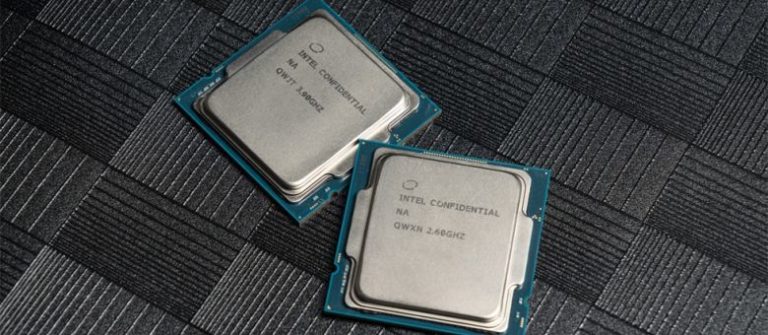
Intel Rocket Lake-S Core i5 series, Source: Chiphell
Intel Rocket Lake-S has already been extensively tested by respected and known tech publications even before the company formally announced the new series. We have seen multiple reviews of Core i9-11900 series engineering samples weeks in advance, and more recently we get to see retail Core i7-11700K CPUs showing their muscles in reviews from
AnandTech and
HardwareLuxx.
All these CPUs were 8-core and 16-thread SKUs, which will probably become the most popular choice among Intel enthusiasts, but for people on a budget, the Core i5 series may still be a better deal. On
Chiphell, a short review of two 6-core and 12-thread Core i5 CPUs can be found. The member of this community gained access to Core i5-11600KF (unlocked CPU without integrated graphics) and Core i5-11400F (also lacking onboard graphics).
The 11600KF has a TDP of 125W and can boost up to 4.9 GHz and it has a base clock of 3.9 GHz, that’s according to the CPU-Z. The 11400F, on the other hand, is a 65W model with a base clock of 2.6 GHz and a max turbo clock going up to 4.4 GHz. Both are based on Cypress Cove architecture and will offer PCI Gen4 support. Unfortunately, both being part of the F-series will lack integrated Xe Gen12 graphics.


Intel Core i5-11600KF & 11400F CPU-Z, Source: Chiphell
The CPUs were tested on Gigabyte Z490 AORUS Ultra motherboard which featured the latest available BIOS for the 11th Gen Core series. This does not mean that Gigabyte will not release even more optimized BIOS before launch, and we have already seen that there still a lot to gain from the newer microcode. The system was paired with 16GB of ZADAK Spark DDR4-3600.
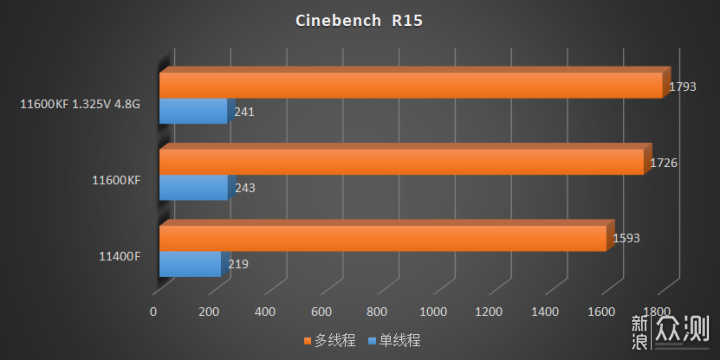
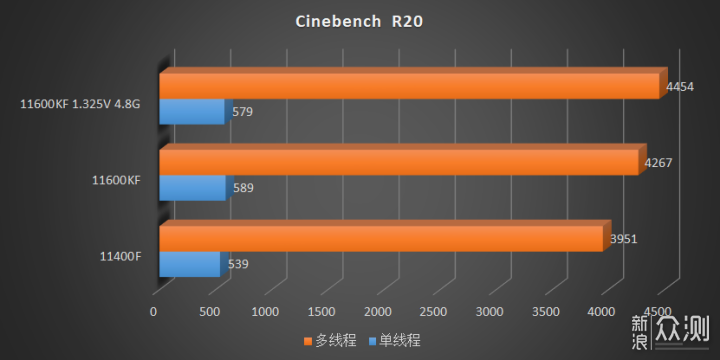
Intel Core i5-11600KF & 11400F Cinebench R15/20, Source: Chiphell


Intel Core i5-11600KF & 11400F Cinebench R23, 3DMark Time Spy, Source: Chiphell

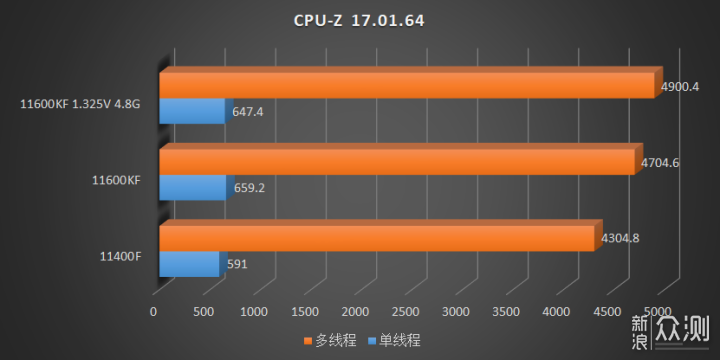
Intel Core i5-11600KF & 11400F CPU-Z 19 & 17, Source: Chiphell
Both CPUs were cooled down by a triple-fan AIO kit called ‘GI-CX360 ARGB’ by PCCooler. The cooling is rated at a maximum of 350W. More than enough for these Core i5 CPUs, even in their PL2 power states. Under load in the AIDA64 test, the 11600KF has an average of 209W power consumption and a temperature of 85C. The 11400F on the other hand reported an average of 145W and 70C.

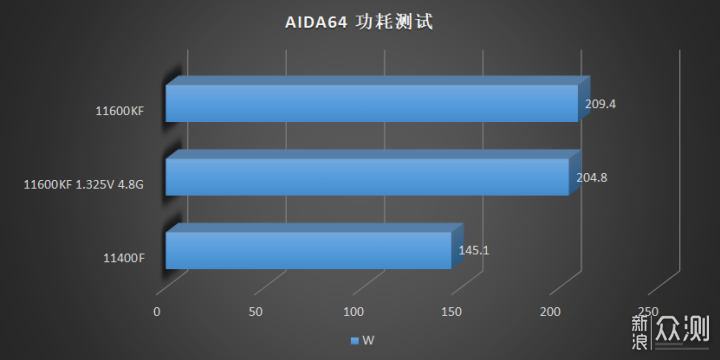
Intel Core i5-11600KF & 11400F Temperature & Power Consumption, Source: Chiphell
The reviewer notes that there may still be changes to performance once a newer BIOS will be released. He tested overclocking on i5-11600KF but the results were underwhelming. He notes that the limit is 4.8 GHz and 4.9 GHz with 1.4V applied, but it was unstable. The temperature has increased noticeably as well, so eventually, he gave up. The 11400F being a non-K part obviously cannot be overclocked, but there are tricks with PL2 and Tau modifications, which the reviewer did not test. Gaming tests were not performed, because the user expects better optimization with newer BIOS.
| “K Series” – Unlocked, “F Series” – no iGPU, “KF Series” – Unlocked & no GPU | | | | | |
|---|
| Intel 10th Gen Core Comet Lake-S | | | | | |
|---|
| Intel 11th Gen Core Rocket Lake-S | | | | | |
|---|
| SKU | Cores / Threads | Base Clock | All Core Boost | Single-Core Boost | TDP |
|---|
| Intel 11th Gen Core Series Specifications | | | | | |
|---|
| i9-11900K(F) |
8C/16T |
3.5 GHz |
4.8 GHz (TVB) |
5.3 GHz (TVB) |
125W |
|---|
| i9-11900(F) |
8C/16T |
2.5 GHz |
4.7 GHz (TVB) |
5.2 GHz (TVB) |
65W |
|---|
| i7-11700K(F) |
8C/16T |
3.6 GHz |
4.6 GHz |
5.0 GHz |
125W |
|---|
| i7-11700(F) |
8C/16T |
2.5 GHz |
4.4 GHz |
4.9 GHz |
65W |
|---|
| i5-11600K(F) |
6C/12T |
3.9 GHz |
4.6 GHz |
4.9 GHz |
125W |
|---|
| i5-11600(F) |
6C/12T |
2.8 GHz |
4.3 GHz |
4.9 GHz |
65W |
|---|
| i5-11500(F) |
6C/12T |
2.7 GHz |
4.2 GHz |
4.6 GHz |
65W |
|---|
| i5-11400(F) |
6C/12T |
2.6 GHz |
4.2 GHz |
4.4 GHz |
65W |
|---|
| i9-10900K(F) |
10C/20T |
3.7 GHz |
4.9 GHz (TVB) |
5.3 GHz (TVB) |
125W |
|---|
| i9-10900(F) |
10C/20T |
2.8 GHz |
4.6 GHz (TVB) |
5.2 GHz (TVB) |
65W |
|---|
| i7-10700K(F) |
8C/16T |
3.8 GHz |
4.7 GHz |
5.1 GHz |
125W |
|---|
| i7-10700(F) |
8C/16T |
2.9 GHz |
4.6 GHz |
4.8 GHz |
65W |
|---|
| i5-10600K(F) |
6C/12T |
4.1 GHz |
4.5 GHz |
4.8 GHz |
125W |
|---|
| i5-10600 |
6C/12T |
3.3 GHz |
4.4 GHz |
4.8 GHz |
65W |
|---|
| i5-10500 |
6C/12T |
3.1 GHz |
4.2 GHz |
4.5 GHz |
65W |
|---|
| i5-10400(F) |
6C/12T |
2.9 GHz |
4.0 GHz |
4.3 GHz |
65W |
|---|
Source:
Chiphell via
@harukaze5719
https://videocardz.com/newz/intel-c...0f-6-core-12-thread-rocket-lake-s-cpus-tested























